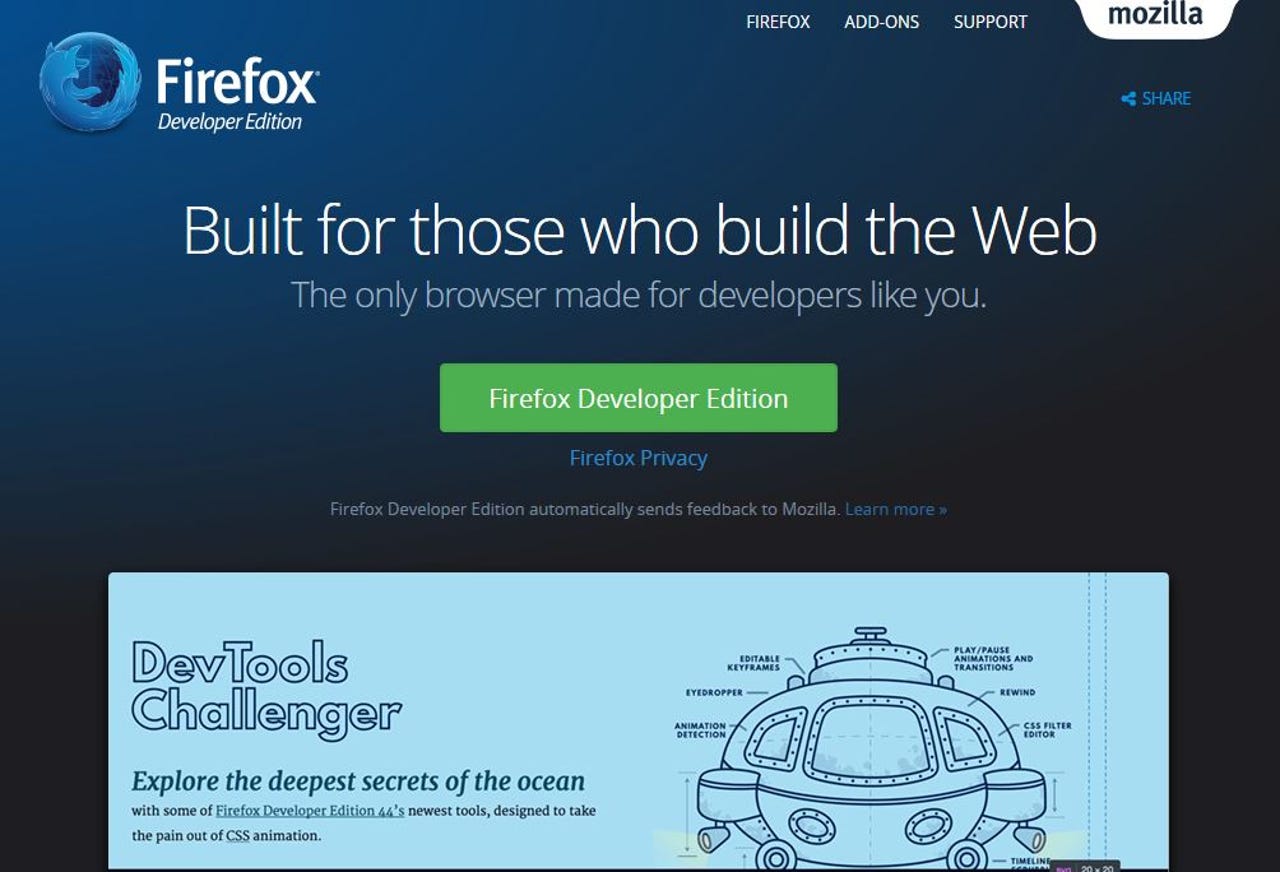Firefox drops its Aurora Channel, moving the Developer Edition to the beta version


Mozilla is discontinuing the Aurora version of its Firefox browser, which formed the basis of its developer version. From April 18, developers will be moved to the beta version. However, Mozilla says that "users will maintain their Developer Edition themes, tools, and preferences, will keep their existing profile, and should not experience any disruption".
The Aurora Channel will also be discontinued for Thunderbird and SeaMonkey programs.
Eliminating Aurora will also affect ordinary users, because code will reach release versions of Firefox six to eight weeks sooner than before.
Firefox introduced the Aurora Channel in 2011. Aurora builds came between the nightly builds and the official beta versions of Firefox. In future, Firefox code will go straight from Nightly to Beta and then to Release, which is what most people would expect.
Chris Peterson, technical program manager at Mozilla, commented on Hacker News that "The Aurora channel never got as much traction as Mozilla anticipated. The original plan was for Beta to have 10x the number of users as Aurora and Aurora to have 10x the number of users as Nightly. Today, Aurora has only about 2x the number of users as Nightly and there isn't much difference between the types of user hardware or bugs found in Aurora compared to Nightly. Thus, there isn't much additional QA benefit when a Firefox release moves from the Nightly to Aurora channel. Most of the serious regressions are found in Nightly so Aurora is just six weeks of additional latency before new features and bug fixes reach the Release channel users."
Firefox betas are of interest because version 54, which moves to beta on April 18, is the first to use four content processes by default. This should increase pressure on the extension suppliers whose add-ons are currently not compatible with multi-process operation and prevent it from working.
According to my own copy of Firefox 52, incompatible add-ons include Extended Statusbar, Mozilla Archive Format, and Search by Image (by Google).
Multi-process functionality first appeared in Firefox 48 on August 2 last year, so developers have already had eight months to fix their add-ons. However, Mozilla says that "the best solution is to rewrite your add-on as a WebExtension. WebExtension APIs are compatible with multiprocess Firefox. WebExtensions are the future of Firefox add-ons."
Although developers may not like the idea, Mozilla points out that other types of extension, "including XUL overlay add-ons, bootstrapped add-ons, and SDK add-ons," will stop working when version 57 of Firefox is released on November 14.
Firefox is not following Chrome in using one process per tab, because this consumes a vast amount of resources. Instead, it is exploring a way to provide users with more control. Last week, Bleeping Computer reported a proposal to allow users to select from one to seven content processes, with the eighth process being used by Firefox itself.
Firefox release schedule